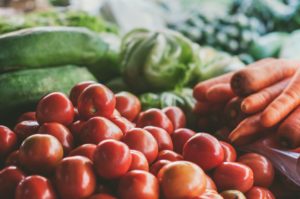
Good nutrition is vital to good health. Here are some low cost/no cost resources for all ages and income levels available right here in Boone County.
Boone Hospital’s Head to Toe Program
Head to Toe is for kids ages 8-12 who are at risk for obesity and are interested in weight management, fitness and healthier living. The cost of the program is $100 for 12 sessions – $50 of which will be refunded upon completion of the program with a perfect attendance record. It is not covered by insurance but scholarships and financial assistance may be available.
Missouri Live Well Restaurant Program
The Columbia/Boone County Department of Public Health and Human Services is participating in the state-wide Live Well Restaurant program. The program works with restaurants to identify healthy menu options. Live Well menu items are lower in fat, calories and sodium. The program uses science-based nutrition criteria to identify Live Well items and Live Well Restaurants must serve at least two healthy menu options that meet specific nutrition criteria. Check out the list of Columbia/Boone County participating restaurants here.
Hy-Vee supermarkets have many low cost resources for anyone interested in nutrition and healthy eating.
- Answers in the Aisles – Free service available to answer your questions about food, products, nutrition and health. For questions while you shop, request to speak with your Hy-Vee dietitian at Customer Service.
- Group Supermarket Tours – Free supermarket tours for your group. Learn about label reading, receive budget-friendly saving tips and discuss the basics of nutrition and healthy eating. Tours can be tailored to your needs.
- Personal Nutrition Counseling – Interested in receiving individual nutrition therapy? This service is provided to treat a medical condition and associated symptoms through diet. The Hy-Vee dietitian will examine your medical history, evaluate your nutrition status and work with you to develop a plan for lifestyle changes based on your unique nutrition needs. With a physician referral and by appointment only, contact the dietitians to discuss fee information and insurance options.
- Health Screenings –Don’t wait for chronic diseases to sneak up on you. Take preventative measures by getting a biometric screening provided by a Hy-Vee dietitian. Get quick and accurate results on cholesterol, blood pressure, blood sugar, body fat and body mass index (BMI). Dietitians will give you the information you need and show you the foods you can choose to improve your health. Contact the dietitians to discuss fee information and insurance options.
- Kids’ Nutrition Events –A variety of kids’ classes are available to encourage children to try new, healthy foods and give them hands-on experience making various recipes in the kitchen. Visit the store’s website for more information, scheduling and fees.
Community Food Programs
Other community food programs help provide meals and nutrition information to Missourians who meet specific qualifications.
- Women, Infants and Children (WIC) program offers nutrition education, health screenings and vouchers for food to pregnant women, new mothers, infants, and children up to five years of age.
- The Child and Adult Care Food Program provides funding for meals and snacks for eligible children and adults at child and adult day care centers, homes that provide child care services, after school programs and emergency shelters.
- The Summer Food Service Program provides funds for meals served to low-income, school-age students and qualifying adults with disabilities during the summer when school is not in session. The meals are served by schools and community-based organizations at hundreds of locations throughout the state.
- The Missouri Commodity Supplemental Food Program distributes food to qualifying women, infants and children and senior citizens age 60 and older. Dozens of community organizations across the state help determine program eligibility, distribute the food, and provide nutrition education to program participants.